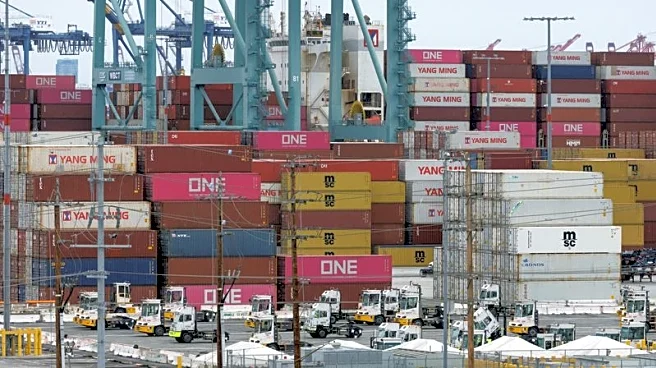What's Happening?
The Global Manufacturing Purchasing Managers' Index (PMI) for September shows a slight decline to 50.8 from 50.9 in August, indicating a slowdown in global factory expansion. While there were strong production gains in India and Thailand, other regions like Taiwan, Russia, Brazil, and the UK experienced sharp downturns. The PMI data, compiled by S&P Global, reflects varied global manufacturing conditions, with some regions benefiting from US tariffs that temporarily boosted production and exports.
Why It's Important?
The PMI data is a critical indicator of economic health, providing insights into manufacturing trends worldwide. The slowdown in factory expansion suggests potential challenges for global economic growth, particularly in regions facing downturns. The impact of US tariffs has created temporary boosts in some areas, but the long-term effects could lead to economic adjustments. This data is vital for policymakers and businesses to understand economic conditions and make informed decisions.
What's Next?
As the year progresses, the effects of US tariffs and other economic factors will likely continue to influence global manufacturing trends. Stakeholders will need to monitor these developments closely, as they could impact employment, production, and trade policies. The potential for further economic shifts underscores the importance of strategic planning and adaptation in the manufacturing sector.











